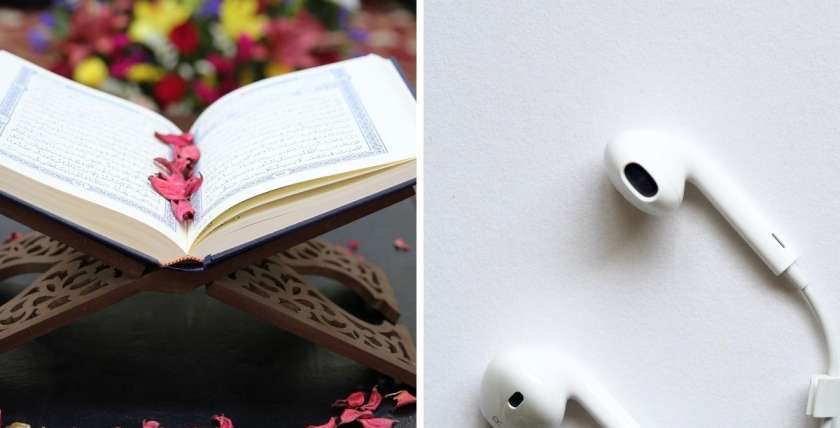Besides the obligatory prayers in Islam, there are what is called Nafl and Sunnah, so which one is Eid prayer? That’s what we will find out shortly.
Eid prayer is Wajib or sunnah? When it comes to answering whether Eid prayer is Wajib or sunnah the scholars’ opinions differ. Some say that Eid prayer is Wajib for all Muslims, some say that it is Wajib for men only whilst others say that it is sunnah.
If you want to know the different opinions regarding Eid prayer and to learn how to pray it then keep reading.
Is Eid prayer obligatory?

There are different opinions regarding this specific topic, here are the three opinions:
- The point of view of Imam Malik and Imam al-Shafi’i: Eid prayer is sunnah, not Fard.
- Imam Ahmad says that it is a communal obligation.
- Whilst Imam Abu Hanifah says that it is obligatory for men and any man that doesn’t pray it with no excuse is a sinner.
Evidence showing that Eid prayer is Wajib:
The scholars that back this point of view hold the following as evidence:
The following verse from the Holy Quran:
“Therefore, turn in prayer to your Lord and sacrifice (to Him only).” [al-Kawthar 108:2]
Ibn Qudamah interprets the meaning of this verse as: “The well-known view is that what is meant by this is the ‘Eid prayer.”
They also hold the hadith of the prophet (peace and blessing be upon him) as strong evidence.
Umm `Atiyyah (ABPWH) narrated that the Prophet (PBUH) commanded:
“Let the free women, the virgins, and the menstruating women go out to attend the Eid prayer, and witness the good and the supplications of the believers.
As for the menstruating women, they should stay away from the Musalla. (i.e., should not participate in the prayer itself).”
Shaykh Ibn ‘Uthaymin said in Majmu’ al-Fatawa (16/214):
“What I think is that the ‘Eid prayer is fard ‘ayn (an individual obligation), and that it is not permissible for men to miss it, rather they have to attend because the Prophet (peace and blessings of Allah be upon him) enjoined that.
He even commanded the women – including virgins and those who usually stayed in seclusion – to come out to the ‘Eid prayer, and he commanded menstruating women to come out to the ‘Eid prayer, but told them to keep away from the prayer-place itself. This indicates confirmation.”
He also said (16/217):
“What seems more likely to be correct in my view, based on the evidence, is that it is fard ‘ayn (an individual obligation) and that it is obligatory for every male to attend the ‘Eid prayer apart from those who have an excuse.”
Sheikhul-Islam Ibn Taymiyyah said: “… Thus, we lean towards the opinion that Salatul-Eid is Fard `Ayn (individual obligation) on each individual. This is the opinion of Abu Hanifah and others and is one of the two reported opinions of ash-Shafi`i and of the school of Ahmad. The opinion held by some people, that it is not Wajib, is extremely unlikely because it is one of the greatest rites of Islam; more people gather for it than for Friday, and the Takbir has been legislated for its sake. The opinion of those who say that it is Fard Kifayah (communal obligation) is unjustified…”
Sheikh al-Albani states: “The Prophet’s (PBUH) command mentioned here indicates obligation; when it is Wajib to go out for it, it is Wajib to pray it, because of its higher priority. Thus, the truth is that it is an obligation – not a mere recommendation.”
Is there any prayer before or after Eid prayer?
Islam commands that you should not perform any prayer before or after Eid prayer. And here are some hadiths to prove it:
Ibn Abbas narrated: “The Prophet (peace be upon him) went out (of his house) on the day of Fitr, prayed two Rakat, and did not pray before or after it.”
Ibnul-Qayyim said: “Neither he (peace be upon him) nor his companions prayed when they arrived at the Musalla – before the prayer or after it.”
Ibn Hajar said: “… In short, there is no confirmed sunnah prayer before or after the Eid prayer – contrary to those who compare it to the Jumu`ah prayer.”
What is the time of Eid prayer?
Abu Bakr al-Jaza’iri said: “The time of the two Eid prayers is after the sun has reached the height of a spear, and until noon. However, it is best to pray al-Adha at the earliest time, to enable the people to slaughter their sacrifices; and is recommended to delay al-Fitr prayer, to enable the people to give out their Sadaqah (zakatul-Fitr).”
Difference between Sunnah and mustahabb:
Fard or obligatory prayers are the prayers that we are obligated to pray, not praying them is a sin. And Fard prayers are: fajr, dhuhr, ASR, Maghrib, isha.
Whilst Sunnah means the optional prayers that there is no sin in not performing them and many rewards when being performed. Sunnah includes 2 before Fajr, 4 before Dhuhr and 2 after, 4 before ASR, 2 after Maghrib, and 2 after Isha.
Sunnah and mustahabb are both similar. The point of performing them is to get closer to Allah and seek forgiveness. Performing these prayers grants the person many rewards.
How to pray Eid prayer step by step?
Make the niyyah (intention) before you start praying. The intention comes from the heart you don’t have to say it. Say the following: ‘I intend to pray two Rakah of the Eid al-Fitr prayer for Allah.’ By doing so you prepare yourself mentally so that you can concentrate.
Now you don’t pray on your own, follow the imam. Even if you know how to perform the salah on your own you shouldn’t move or speak before the imam. You are not racing with the imam, so listen to him and follow his lead.
The Takbeers:
When the imam raises his hands and says “Allahu Akbar”, you should do the same. Then you will recite the al-Istiftah Dua. Afterward, the imam will say “Allahu Akbar” 3 times and you will repeat after him and raise your hands after each utterance.
After raising your hands put them back down by your sides. “Allahu Akbar” means “The Lord is the most magnificent” or “Allah is the greatest.”. while al-Istiftah Dua is the dua that refers to starting the salah. There are multiple dua but here are one of them: غَيْرُكَ (Subhanaka Allahumma wa bihamdika wa tabarakasmuka, wa ta’ala jadduka wa la ilaha ghairuk).
Now put both your hands on your chest, place the right hand on top the left hand. The imam will now recite surah Al Fatiha and then a second Surah. The sunnah is to recite surah Al A’la in the first rakah. Listen to the imam carefully and try to focus.
When the imam finishes the surah he is reciting you will perform what is called Ruku, meaning that you will bow and place your hands on your knees and say “Subhaana rabiyal ‘adheem” three times.
Try to make your back parallel to the ground and look at the ground. Then when you hear the imam saying “Sami Allahu liman Hamidah”, stand up again and say “Rabbana lakal Hamd”, and they both mean “Allah hears those who praise him,” and “Our Lord, praise be to You.
Now when the imam says “Allahu Akbar.” You will go into sujud. You get onto your knees with your forehead touching the ground and say “Subhaana rabiyal a’la” three times. Then you will sit and do another sujud. And this is the end of the first rakah.
The imam will say “Allahu Akbar” and you will stand back up. Then the imam will recite surah Al Fatiha and another Surah. The sunnah is to recite Surah Al Ghashiyah in the second rakah. During this listen carefully and try to focus.
When the imam raises his hands and say “Allahu Akbar”, you should do the same. Then you will recite the al-Istiftah Dua. Afterwords the imam will say “Allahu Akbar” 3 times and you will repeat after him. Then go to ruku after the third “Allahu Akbar”.
Now say “Subhaana rabiyal ‘adheem” three times. Try to make your back parallel to the ground and look at the ground.
Then when you hear the imam saying “Sami Allahu liman Hamidah”, stand up again and say “Rabbana lakal Hamd”, and they both mean “Allah hears those who praise him,” and “Our Lord, praise be to You.
When the imam says “Allahu Akbar.” You will go into sujud. You get onto your knees with your forehead touching the ground and say “Subhaana rabiyal a’la” three times. Then you will sit and do another sujud.
When you finish the second sujud sit and say the Tashahhud
Tashahhud is recited in arabic as follows:
التَّحِيَّاتُ لِلَّهِ وَالصَّلَوَاتُ وَالطَّيِّبَاتُ السَّلَامُ عَلَى النَّبِيُّ وَرَحْمَةُ اللَّهِ وَبَرَكَاتُهُ السَّلَامُ عَلَيْنَا وَعَلَى عِبَادِ اللَّهِ الصَّالِحِين. أَشْهَدُ أَنْ لا إِلَهَ إِلَّا اللَّهُ وَأَشْهَدُ أَنَّ مُحَمَّدًا عَبْدُهُ وَرَسُولُهُ
اللَّهُمَّ صَلِّ عَلَى مُحَمَّدٍ وَعَلَى آلِ مُحَمَّدٍ كَمَا صَلَّيْتَ عَلَى إِبْرَاهِيمَ وَعَلَى آلِ إِبْرَاهِيمَ إِنَّكَ حَمِيدٌ مَجِيدٌ. اللَّهُمَّ بَارِكْ عَلَى مُحَمَّدٍ وَعَلَى آلِ مُحَمَّدٍ كَمَا بَارَكْتَ عَلَى إِبْرَاهِيمَ وَعَلَى آلِ إِبْرَاهِيمَ إِنَّكَ حَمِيدٌ مَجِيد
Attahiyyaatu lillaahi wassalawaatu wattayyibatu. Assalaamu ‘alayka ayyuhan-Nabiyyi warahmatullaahi wabarakaatuh. Assalaamu ‘alyna wa ‘ala ‘ibaadillaahis saaliheen. Ash-hadu an laa ilaaha illallaah wa ash-hadu anna Muhammadan ‘abduhu wa rasooluh.
Allaahumma salli ‘ala Muhammad wa ‘ala aali Muhammad kama sallaita ‘ala Ibraaheem wa ‘ala aali Ibraaheem innaka Hameedun Majeed, wabaarik ‘ala Muhammad wa ‘ala aali Muhamaad kama baarakta ‘ala Ibraaheem wa ‘ala aali Ibraaheem innaka Hameedun Majeed.
Meaning: “All the compliments are for Allah and all the prayers and all the good things (are for Allah). Peace be upon you, O Prophet, and Allah’s mercy and blessings (are on you). And peace be upon us and on the good (pious) worshipers of Allah. I testify that none has the right to be worshipped but Allah and that Muhammad is His slave and Apostle.
O, Allah! Praise Muhammad, and on the family of Muhammad, as You Praised Ibraaheem and the family of Ibraaheem; you are indeed Worthy of Praise, Full of Glory. And send blessings on Muhammad, and on the family of Muhammad, as you sent blessings on Ibraaheem, and the family of Ibraaheem; you are indeed Worthy of Praise, Full of Glory.”
11- When you finish the Tashahhud turn your face to the right and say “Assalamu alaikum wa Rahmatullah.” Then turn your face to the left and repeat the prayer again.
Now, it’s time to learn more about Islam. Start with our online Quran courses here. You can also check more Quran classes here.






